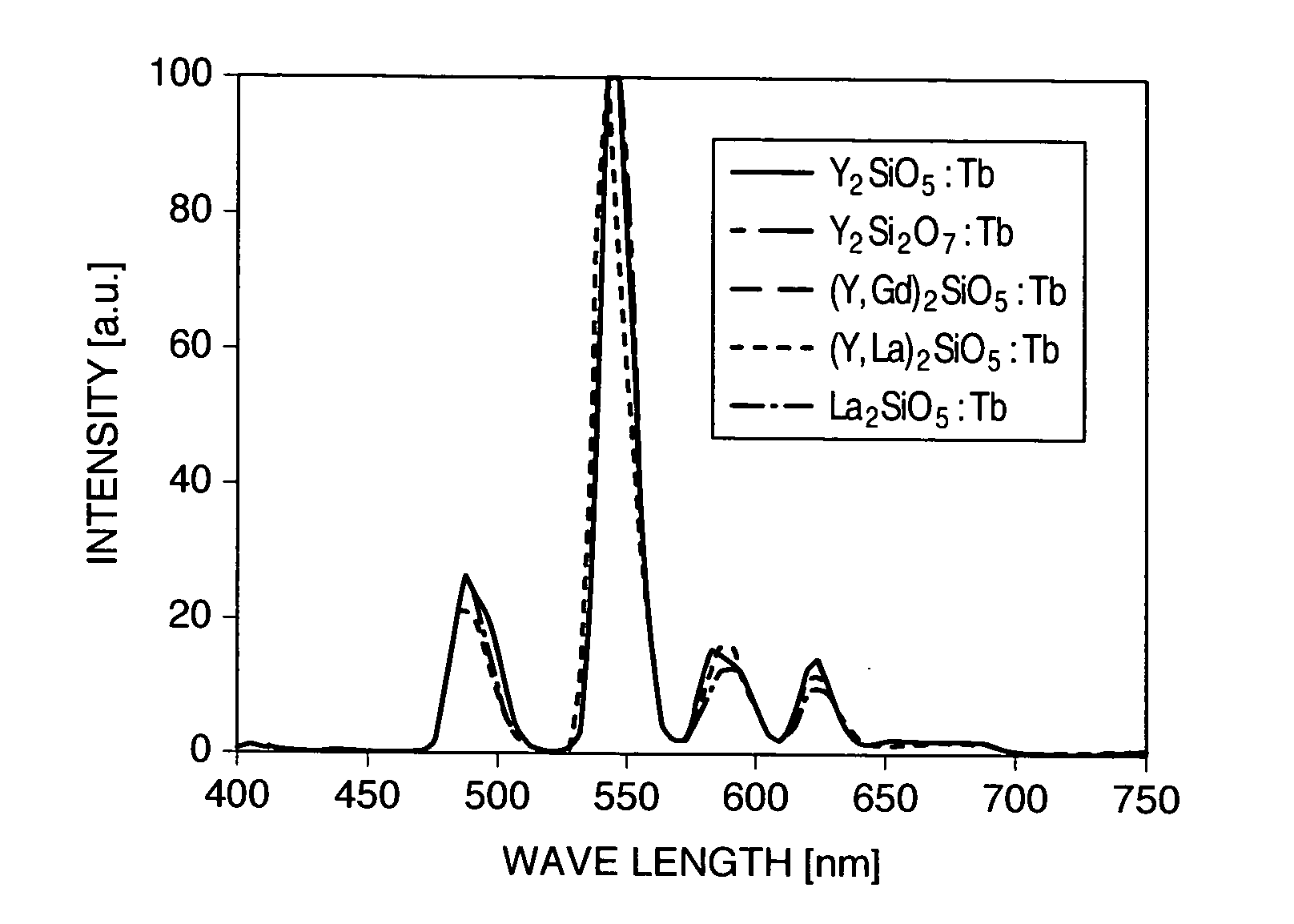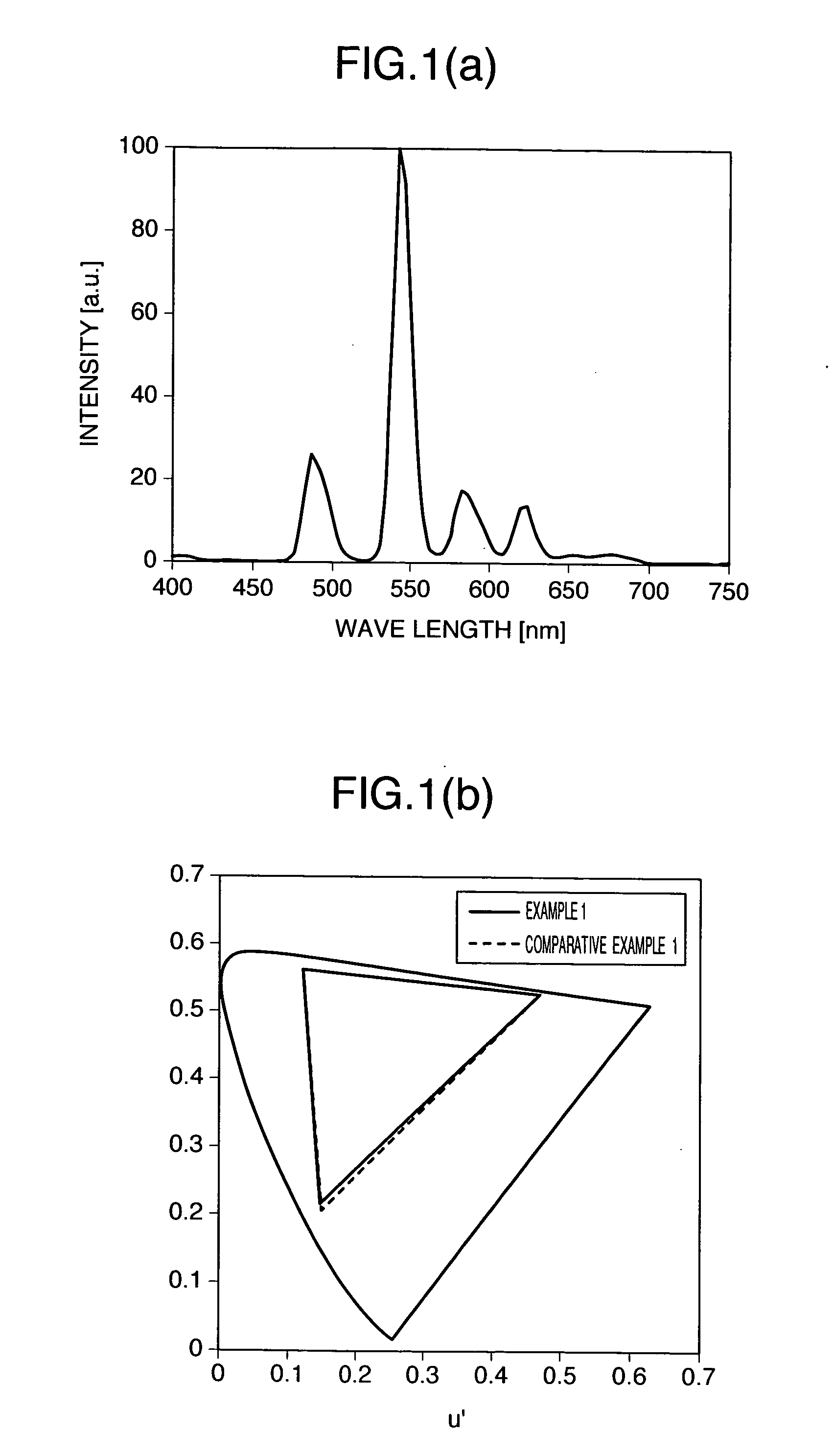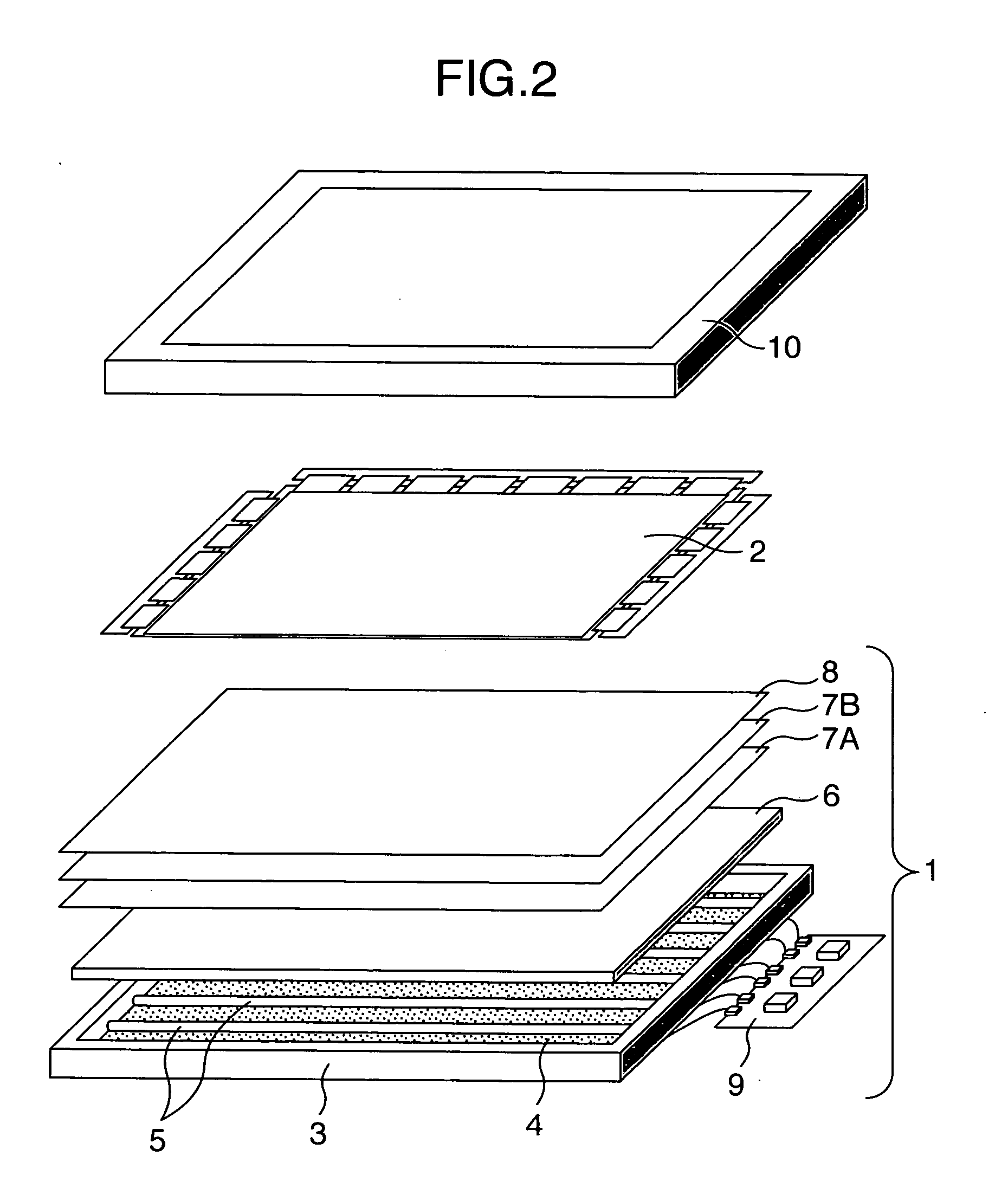Liquid crystal display device
a liquid crystal display and display device technology, applied in the field of white light sources, can solve the problems of reducing color reproducibility, conceivable response delay in a ccfl, and insufficient brightness, and achieve the effect of satisfying moving picture characteristics, color reproducibility and reliability
- Summary
- Abstract
- Description
- Claims
- Application Information
AI Technical Summary
Benefits of technology
Problems solved by technology
Method used
Image
Examples
example 1
[0130] The liquid crystal display device of this Example has the same structure as that of a conventional one. The schematic structure is shown in FIG. 2. What is different from the conventional one is a green phosphor material used in CCFL. In this Example, a green phosphor mixture is used as a green phosphor, more specifically, a mixture of LaPO4: Tb, Ce and Y2SiO5; Tb, Ce is used. Now, a process for manufacturing a CCFL using these phosphors and a process for manufacturing a liquid crystal display device using the CCFL will be described.
[0131] A CCFL is generally manufactured in accordance with steps shown in FIG. 11. The structure of the CCFL manufactured is shown in FIG. 3(a). First, a binding agent such as alumina and phosphor materials are mixed in an organic solvent called a vehicle. In this Example, as a blue phosphor and a red phosphor, conventional BaMgAl10O17: Eu and Y2O3: Eu are used, respectively. As a green phosphor, a green phosphor mixture of LaPO4: Tb, Ce and Y2Si...
example 2
[0139] This Example differs from Example 1 in the green phosphor mixture to be used; however, other constitutions are the same as in Example 1. In this Example, as the green phosphor mixture, a mixture of LaPO4: Tb, Ce and Y3Al5O12: Tb, Ce is used. The mixing ratio of LaPO4: Tb, Ce to Y3Al5O12: Tb, Ce is 0.1 to 0.9 on a molar basis.
[0140] The emission spectrum of the green phosphor mixture is shown in FIG. 12(a). The spectrum has substantially the same as that of LaPO4: Tb, Ce conventionally used. The response characteristics are τon=2.8 msec and τoff=4.0 msec, which are reduced to about 60% of a conventional LaPO4: Tb, Ce.
[0141] The color gamut of the liquid crystal display device obtained in this Example is shown in FIG. 12(b). The color gamut is substantially the same as that of Comparative Example 1 described later. The chromaticity change of a blue color is as extremely small as Δu′, v′=0.008, which is lower than a visual detection ability of a human (Δu′, v′<0.02).
[0142] Th...
example 3
[0143] This Example differs from Example 1 in the green phosphor mixture to be used; however, other constitutions are the same as in Example 1. In this Example, as the green phosphor mixture, a mixture of LaPO4: Tb, Ce and LaOCL: Tb, Ce is used. The mixing ratio of LaPO4: Tb, Ce to LaOCL: Tb, Ce is 0.3 to 0.7 on a molar basis.
[0144] The emission spectrum of the green phosphor mixture is shown in FIG. 13(a). The spectrum has substantially the same as that of LaPO4: Tb, Ce conventionally used. The response characteristics are τon=2.4 msec and τoff=3.0 msec, which are reduced to about 50% of a conventional LaPO4: Tb, Ce.
[0145] The color gamut of the liquid crystal display device obtained in this Example is shown in FIG. 13(b). The color gamut is substantially the same as that of Comparative Example 1 described later. The chromaticity change of a blue color is as extremely small as Δu′, v′=0.001, which is lower than a visual detection ability of a human (Δu′, v′<0.02).
[0146] The liqu...
PUM
 Login to View More
Login to View More Abstract
Description
Claims
Application Information
 Login to View More
Login to View More - R&D
- Intellectual Property
- Life Sciences
- Materials
- Tech Scout
- Unparalleled Data Quality
- Higher Quality Content
- 60% Fewer Hallucinations
Browse by: Latest US Patents, China's latest patents, Technical Efficacy Thesaurus, Application Domain, Technology Topic, Popular Technical Reports.
© 2025 PatSnap. All rights reserved.Legal|Privacy policy|Modern Slavery Act Transparency Statement|Sitemap|About US| Contact US: help@patsnap.com



